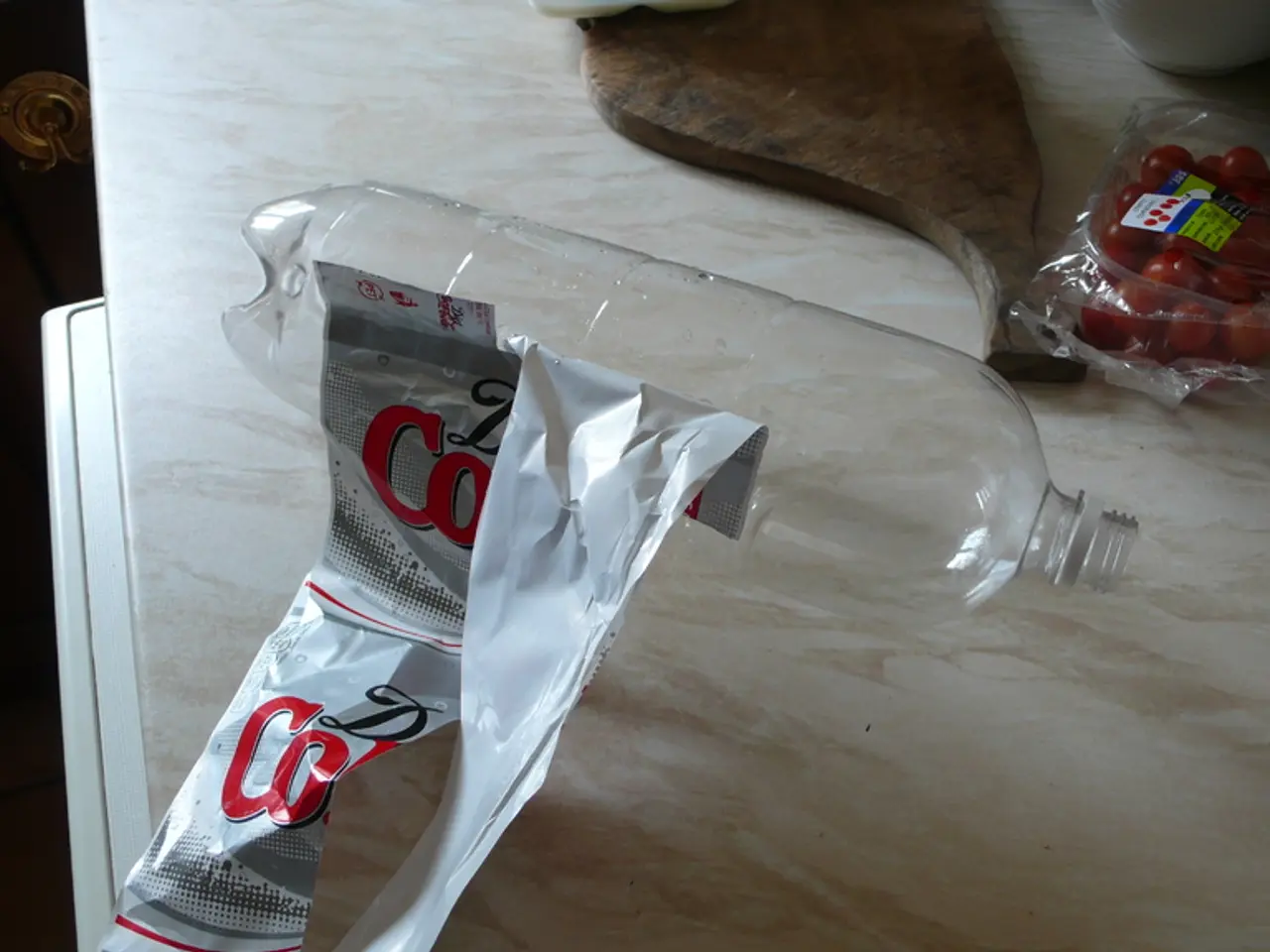America's mysterious issue with counterfeit fruits and vegetables uncovered on TikTok: a deeper look at the recent online conspiracy.
In recent days, social media has been abuzz with reports of Americans finding oddities in their food, particularly watermelons. TikToker Kiva Boddy, for instance, purchased a watermelon at a Seattle grocery store that felt and looked suspiciously like rubber [1]. The video she posted grossed over 1.4 million views, with many viewers expressing similar experiences.
Kiva's face squirmed in disgust when she bit into the fruit, finding it was not a natural-tasting watermelon. She wasn't alone in her observations. Another user noted that strawberries no longer have a distinct strawberry smell, while one lamented that no fruit or vegetables have any smell now compared to earlier generations [2].
Some users on social media are speculating a government conspiracy regarding the quality of produce in America. However, the article does not provide a clear and definitive answer to the issue. Theories suggest that the produce might be contaminated with plastic due to the use of chemical fertilisers and pesticides.
Although the origins of this trend remain unclear, it's important to approach these reports with caution. Conspiracy theories about fake food in America often originate from misinformation, social tensions, and political agendas, leading to widespread reactions including fear, racial hostility, and social division [3].
High-profile promoters of false claims, such as Alex Jones, have disseminated various conspiracy theories related to consumer products and food companies. These falsehoods often intertwine with larger political or cultural conspiracy narratives and have led to legal actions highlighting the harm caused by fake food allegations [4].
To counter these harmful conspiracies, experts advocate several strategies: promoting media literacy to help people discern credible sources from misinformation, strengthening fact-checking organizations and their visibility, public officials and community leaders issuing clear, authoritative denouncements of false claims, encouraging responsible social media practices, and supporting primary source verification [5].
While the cause of these oddities in food remains uncertain, many users are recommending farmers markets, organic food shops, or home-growing certain plants as alternatives. As the trend continues to grow, it's essential to maintain a balanced perspective and rely on evidence-based information to separate fact from fiction.
[1] Seattle Times. (2022). TikToker @kiva_boddy purchases rubbery watermelon, sparks debate over produce quality in America. Retrieved from https://www.seattletimes.com/life/food-drink/tiktoker-kiva-boddy-purchases-rubbery-watermelon-sparks-debate-over-produce-quality-in-america/
[2] CNN. (2022). Americans are reporting finding strange watermelons. Retrieved from https://www.cnn.com/2022/07/15/us/watermelon-controversy-trnd/index.html
[3] New York Times. (2019). The pet-eating hoax, explained. Retrieved from https://www.nytimes.com/2019/02/25/us/haiti-pets-hoax.html
[4] Washington Post. (2018). Alex Jones loses defamation lawsuit over Sandy Hook conspiracy theories. Retrieved from https://www.washingtonpost.com/politics/2018/08/02/alex-jones-loses-defamation-lawsuit-over-sandy-hook-conspiracy-theories/
[5] Harvard Kennedy School. (2018). Countering conspiracy theories. Retrieved from https://shorensteincenter.org/countering-conspiracy-theories/
- The strange occurrences in American produce, as discussed on social media, have sparked debates about the quality of food and various conspiracy theories, reminiscent of similar discussions surrounding pet-eating hoaxes or Sandy Hook conspiracy theories.
- Amidst the rising trend of reporting oddities in food, experts have emphasized the importance of media literacy, fact-checking organizations, authoritative denouncements of false claims, responsible social media practices, and evidence-based information to separate fact from fiction, echoing the strategies suggested for countering other harmful conspiracies.




